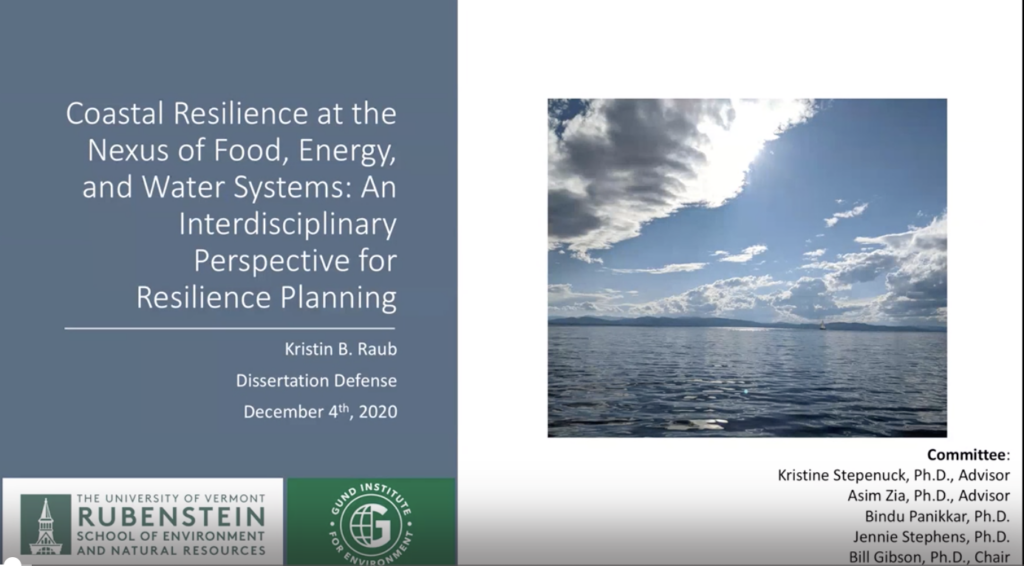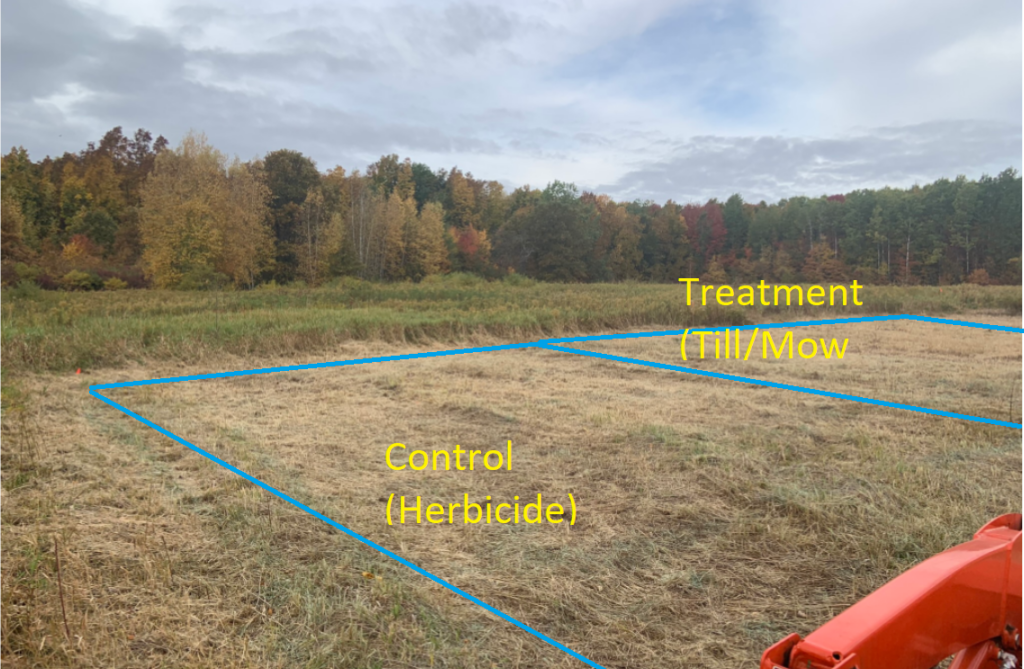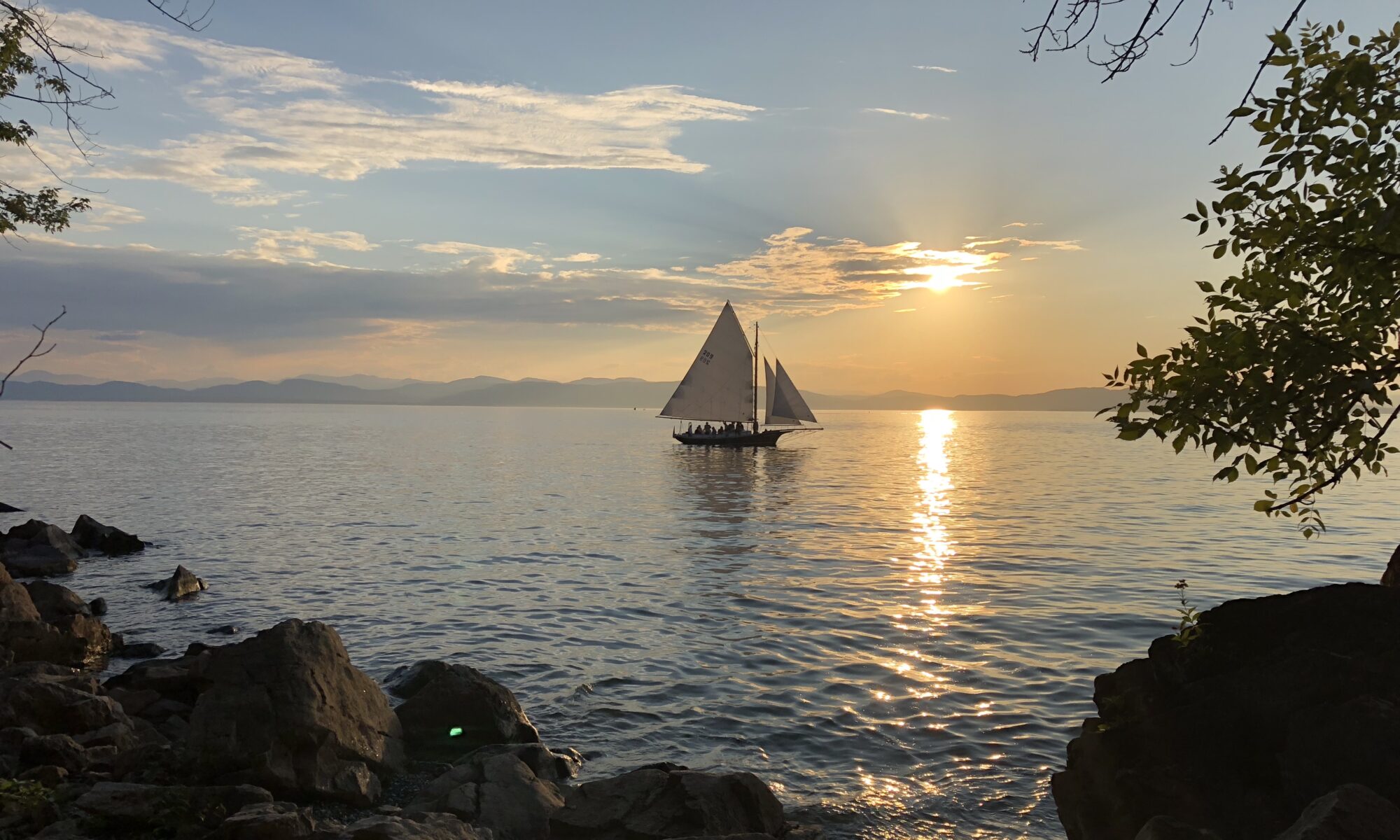
While 2020 has been a challenging year, graduate students in the Watershed, Education, Science and Policy (WESP) Lab have dug deep to achieve a variety of successes – the most recent of which included Kristin Raub’s successful defense of her PhD dissertation on Friday, December 4. Kristin’s research on community resilience planning through a food, energy and water nexus lens involved conducting interviews of community planners, and assessing both peer-reviewed and grey literature (in this case, resilience plans of cities in the 100 Resilient Cities program) related to integration of the FEW nexus in coastal community resilience research and planning. Kristin’s defense presentation is available here for viewing. Plus, for those with interest in understanding her research in more depth, her first research chapter is published in Coastal Management. The full citation is: Raub, K. B., & Cotti-Rausch, B. E. (2019). Helping Communities Adapt and Plan for Coastal Hazards: Coastal Zone Management Program Recommendations for National Tool Developers. Coastal Management, 47(3), 253-268).
Kristin has accepted a postdoctoral position with CUAHSI, which is the Consortium of Universities for the Advancement of Hydrologic Science, Inc.. This is sponsored by the National Science Foundation. She will be continuing to explore a variety of research questions related to the FEW nexus and coastal community resilience that have arisen as she completed her dissertation.
On the same day Kristin defended, Rachel Pierson got word that her final edits to her MS thesis had been accepted by her committee, and she turned in all the paperwork to officially graduate. She will be among those recognized in a virtual ceremony on December 11 held by the Rubenstein School of Environment and Natural Resources at UVM. Rachel is currently serving as Volunteer Coordinator with Volunteer Maryland at the Arlington Echo Outdoor Education Center, a service program she began just days after defending her thesis earlier this semester.

Earlier this fall, Stever Bartlett’s research was featured in a news article as he prepared his study plots for spring tree planting. Learn more about his research here. Funded by the Lake Champlain Basin Program, and carried out in partnership with UVM Extension’s Kate Forrer and Alison Adams, Stever’s research is the first to be conducted to support efforts of the new Watershed Forestry Partnership.
To further support the Watershed Forestry Partnership, the WESP Lab will be bringing in one more graduate student in fall 2021. The available position will be funded by Lake Champlain Sea Grant. Alison Adams, Extension Forestry Coordinator and coordinator of the Watershed Forestry Partnership, and I will be reviewing applications and interviewing potential students in the next few months. The selected student will engage in social science research focused on exploring landowners’ motivations to install forested riparian buffers on their land. Learn more about this position and how to apply here.
In closing, I wish everyone who has the ability to follow guidance of public health officials the strength to continue to be diligent in wearing face coverings, avoiding indoor gatherings with small or large groups, and keeping physically-distanced from everyone from outside your household if you must be in proximity to them. Vaccines are coming, but we have many months to go before they are available to the broad population. Finally, I extend deepest gratitude to both health professionals who are providing care to those who fall ill and other essential workers who face continued exposure to the virus due to their working conditions.
